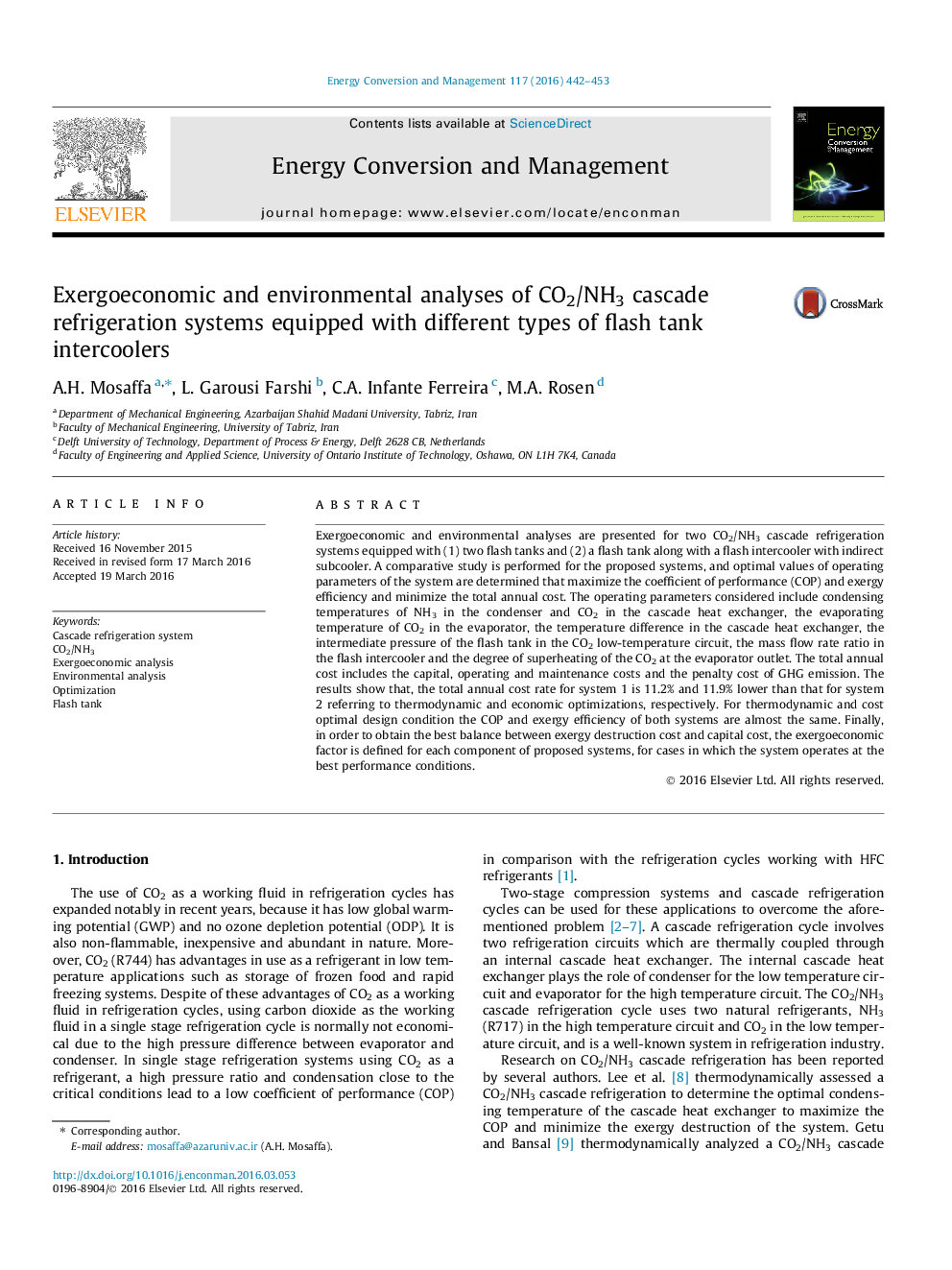| Article ID | Journal | Published Year | Pages | File Type |
|---|---|---|---|---|
| 7160847 | Energy Conversion and Management | 2016 | 12 Pages |
Abstract
Exergoeconomic and environmental analyses are presented for two CO2/NH3 cascade refrigeration systems equipped with (1) two flash tanks and (2) a flash tank along with a flash intercooler with indirect subcooler. A comparative study is performed for the proposed systems, and optimal values of operating parameters of the system are determined that maximize the coefficient of performance (COP) and exergy efficiency and minimize the total annual cost. The operating parameters considered include condensing temperatures of NH3 in the condenser and CO2 in the cascade heat exchanger, the evaporating temperature of CO2 in the evaporator, the temperature difference in the cascade heat exchanger, the intermediate pressure of the flash tank in the CO2 low-temperature circuit, the mass flow rate ratio in the flash intercooler and the degree of superheating of the CO2 at the evaporator outlet. The total annual cost includes the capital, operating and maintenance costs and the penalty cost of GHG emission. The results show that, the total annual cost rate for system 1 is 11.2% and 11.9% lower than that for system 2 referring to thermodynamic and economic optimizations, respectively. For thermodynamic and cost optimal design condition the COP and exergy efficiency of both systems are almost the same. Finally, in order to obtain the best balance between exergy destruction cost and capital cost, the exergoeconomic factor is defined for each component of proposed systems, for cases in which the system operates at the best performance conditions.
Keywords
Related Topics
Physical Sciences and Engineering
Energy
Energy (General)
Authors
A.H. Mosaffa, L. Garousi Farshi, C.A. Infante Ferreira, M.A. Rosen,
